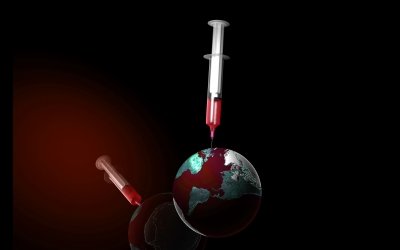
Chinese health authorities have now appointed a special investigation team to look into the nation's vaccine distribution chains
Singapore: Ahead of a huge recent vaccine scandal racket revealing China's vaccine black market in March this year, Chinese health authorities have now appointed a special investigation team to look into the nation's vaccine distribution chains. The announcement came after a scandal broke involving nearly $90 million (S$122 million) worth of illegal vaccines that were suspected of being sold in dozens of provinces.
In a statement published online by the country's National Health and Family Planning Commission, authorities said that the investigation aims to track purchases as well as the distribution of vaccines and vaccination records, to ensure they are legally traded and properly handled and used. Random checks will be conducted at 20 per cent of hospitals and clinics providing vaccinations, while all disease control and prevention agencies nationwide will be inspected, it said.
In March, authorities pledged to crack down on the black market sale of vaccines after a mother and daughter in Shandong province were found to have illegally bought vaccines from traders and sold on to hundreds of re-sellers around China. The police in China also uncovered a $90 million black market scheme which involved the illegal purchase and distribution of non-refrigerated vaccines treating meningitis, rabies, polio, mumps, hepatitis B, encephalitis and other illnesses.
The investigation later revealed that the vaccines were made by licensed producers, were not kept and transported in the required cold conditions, which could mean that patients taking them could suffer severe side effects or even death.
With these measure the administration aims to reveal unsafe practices within the vaccine market. Vaccines that are not properly refrigerated, for example, can be completely ineffective in children or can cause the patient to develop toxicity associated with bacterial contamination.
Recently a fake vaccine scandal that is suspected to have been operating for over a decade jolted Indonesia. Officials have arrested nearly 16 people in the scandal and further investigations are ongoing to determine the scale of the operation and the people involved. As many as 255 million people, mainly children, may have been given counterfeit vaccines after fakes, for diseases including TB, measles, hepatitis B and tetanus, were allegedly sold to health clinics across Indonesia for more than a decade.




